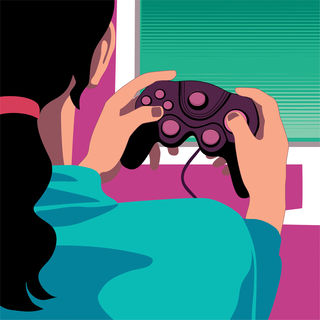Screen Grab
Racking up hours on devices doesn't always point to problems for teens.
By Michaela Brady published May 2, 2017 - last reviewed on July 9, 2017

As we spend more of our lives in front of screens, parents may watch their children with extra concern. Are kids passing too much time on phones and laptops instead of exercising or socializing in person, and does it negatively affect their well-being?
A recent paper in Psychological Science presents a "digital Goldilocks hypothesis," the idea that screen time is typically harmless—or even advisable—up to a certain "just right" level. To test this, more than 120,000 15-year-olds across the U.K. were asked to estimate their engagement in different digital activities, such as watching films or TV programs, playing video games, and using computers and smartphones. The participants also reported on several aspects of well-being, such as happiness, social functioning, and life satisfaction. An analysis found that, in general, moderate media use was positively correlated with higher well-being scores, and teens could spend a considerable amount of time using media each day before a negative association with well-being emerged.
Social media and smartphone apps, the researchers remind us, can help adolescents form an identity and develop social skills, and video games can serve as creative and social platforms. Within reasonable time limits, the average teen may actually have more to gain from electronic devices than to lose.
Time to Turn It Off?
Weekday media use above these totals was associated with lower well-being.
Games: 1 hour and 40 minutes
Smartphones: 1 hour and 57 minutes
Movies and TV (Any Device): 3 hours and 41 minutes
Computers: 4 hours and 17 minutes
Source: Psychological Science, February 2017
Facebook image: antoniodiaz/Shutterstock
